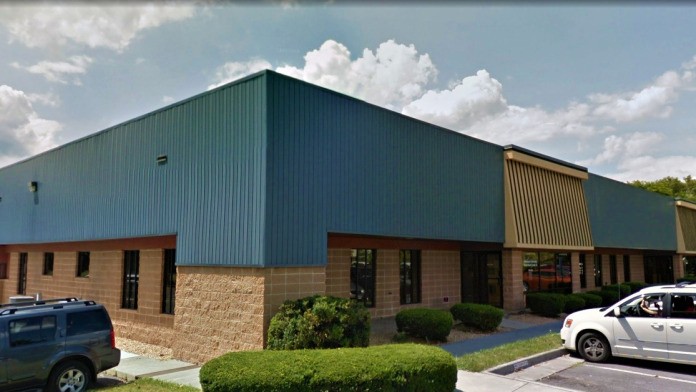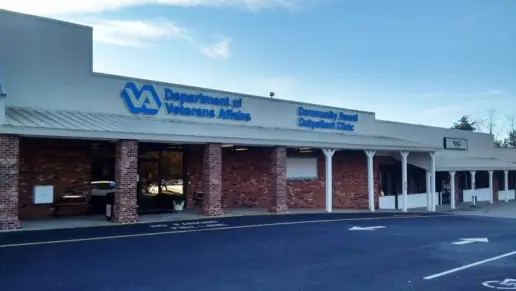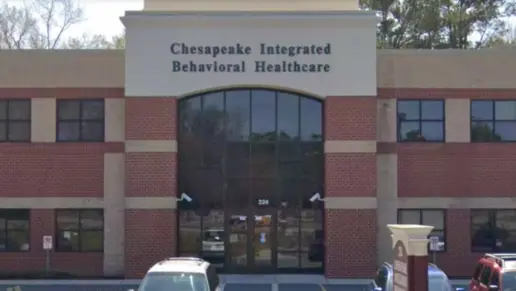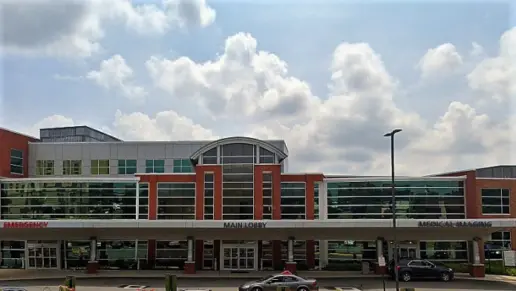Amazing place! I have suffered with my Mental Illness for 40+ years. I have seen numerous doctors & therapists throughout the country. At WCMHC, I was finally given an accurate diagnosis & treatment. I would call this a place to heal. The staff, therapists & doctors are the ...
About Winchester Community Mental Health Center
Winchester Community Mental Health Center in Winchester, Virginia, is an alcohol and drug addiction recovery center for adults and adolescents. They also provide mental health and medication management services to simplify clients' needs. They are a clinical drug rehab facility with modern amenities. Winchester Community Mental Health Center strives to support a diverse culture and client base. They do not discriminate based on race, color, disability (physical or mental), marital status, religion, nation of origin, or other factors.
Outpatient programs are ideal for clients whose symptoms don’t require close monitoring or management by medical staff and who come from stable backgrounds. Outpatient treatment sees clients come to the facility regularly to meet with their care team and receive treatment, which occurs in individual and group settings. Clients continue to live at home, go to work, and attend school while in outpatient care.
Clients work with their care team to develop a treatment plan that best fits their situation. Winchester Community Mental Health Facility utilizes a wide range of therapies and education to treat drug and alcohol addiction, including (but not limited to): family counseling, marriage counseling, medication management, trauma focused counseling, parent mentoring, Christian counseling, and comprehensive assessments. Experiential therapies, like art and equine therapy, are also available.
Dual diagnosis treats addiction alongside other mental health or behavioral issues. It’s not uncommon for someone struggling with mental health disorders to turn to substance abuse as a coping mechanism, which worsens their symptoms. When these issues co-exist, it becomes necessary to treat both to minimize the risk of relapse.
Once co-existing mental health conditions are diagnosed, the care team integrates specialized care into the addiction treatment plan. That way, clients complete one program rather than two. Dual diagnosis boosts treatment success rates while reducing the risk of relapse.
Winchester Community Mental Health Center is accredited by the Commission on the Accreditation of Rehabilitation Facilities.
Latest Reviews
Rehab Score
Gallery

Location
Accepted Insurance
Other Forms of Payment
Medicaid is a state based program that helps lower-income individuals and families pay for healthcare. Medicaid covers addiction treatment so those enrolled can use their coverage to pay for rehab. When a program accepts Medicaid the client often pays very little or nothing out of their own pocket.
Private insurance refers to any kind of healthcare coverage that isn't from the state or federal government. This includes individual and family plans offered by an employer or purchased from the Insurance Marketplace. Every plan will have different requirements and out of pocket costs so be sure to get the full details before you start treatment.
Self-pay involves paying for treatment out of your own pocket. You can use savings or credit, get a personal loan, or receive help from family and friends to fund your treatment. If you don't have insurance or your insurance plan doesn't cover a specific program, self-pay can help ensure you still get the care you need.
Financial aid can take many forms. Centers may have grants or scholarships available to clients who meet eligibility requirements. Programs that receive SAMHSA grants may have financial aid available for those who need treatment as well. Grants and scholarships can help you pai for treatment without having to repay.
Medicare is a federal program that provides health insurance for those 65 and older. It also serves people under 65 with chronic and disabling health challenges. To use Medicare for addiction treatment you need to find a program that accepts Medicare and is in network with your plan. Out of pocket costs and preauthorization requirements vary, so always check with your provider.
Military members, veterans, and eligible dependents have access to specific insurance programs that help them get the care they need. TRICARE and VA insurance can help you access low cost or no cost addiction and mental health treatment. Programs that accept military insurance often have targeted treatment focused on the unique challenges military members, veterans, and their families face.
Addiction Treatments
Levels of Care
Treatments
The goal of treatment for alcoholism is abstinence. Those with poor social support, poor motivation, or psychiatric disorders tend to relapse within a few years of treatment. For these people, success is measured by longer periods of abstinence, reduced use of alcohol, better health, and improved social functioning. Recovery and Maintenance are usually based on 12 step programs and AA meetings.
When you enroll in drug rehab in Virginia, a treatment plan is designed by professional staff in order to help you overcome drug addiction and modify addictive behaviors. This may include evidence-based treatments, group and individual therapy, and relapse prevention.
Many of those suffering from addiction also suffer from mental or emotional illnesses like schizophrenia, bipolar disorder, depression, or anxiety disorders. Rehab and other substance abuse facilities treating those with a dual diagnosis or co-occurring disorder administer psychiatric treatment to address the person's mental health issue in addition to drug and alcohol rehabilitation.
Winchester Community Mental Health Center, Inc provides substance abuse and dual diagnoses services. When you have both a substance abuse problem and a mental health issue such as depression, bipolar disorder, or anxiety, it is called a co-occurring disorder or dual diagnosis. Dealing with substance abuse, alcoholism, or drug addiction is never easy, and it’s even more difficult when you’re also struggling with mental health problems, but there are treatments that can help.
Opioid rehabs specialize in supporting those recovering from opioid addiction. They treat those suffering from addiction to illegal opioids like heroin, as well as prescription drugs like oxycodone. These centers typically combine both physical as well as mental and emotional support to help stop addiction. Physical support often includes medical detox and subsequent medical support (including medication), and mental support includes in-depth therapy to address the underlying causes of addiction.
Programs

Clinical Services
Group therapy is any therapeutic work that happens in a group (not one-on-one). There are a number of different group therapy modalities, including support groups, experiential therapy, psycho-education, and more. Group therapy involves treatment as well as processing interaction between group members.
In individual therapy, a patient meets one-on-one with a trained psychologist or counselor. Therapy is a pivotal part of effective substance abuse treatment, as it often covers root causes of addiction, including challenges faced by the patient in their social, family, and work/school life.
Trauma therapy addresses traumatic incidents from a client's past that are likely affecting their present-day experience. Trauma is often one of the primary triggers and potential causes of addiction, and can stem from child sexual abuse, domestic violence, having a parent with a mental illness, losing one or both parents at a young age, teenage or adult sexual assault, or any number of other factors. The purpose of trauma therapy is to allow a patient to process trauma and move through and past it, with the help of trained and compassionate mental health professionals.
Marriage counseling, also called couples therapy, is a type of psychotherapy. Marriage counseling helps couples recognize specific needs and areas of conflict in an effort to resolve those issues and heal the relationship. WCMHC’s focus is primarily on building communication skills to help couples avoid misunderstandings and identify specific problem areas. By isolating specific needs the therapist can help the couple build bridges of understanding and coping skills to work through and avoid major problems.
Breakdowns within the family can occur and are most commonly associated with a lack of communication. Family counseling is a type of psychotherapy that may have one or more objectives. Family counseling may help to bring about better family relationships and interactions by identifying specific problematic areas. Counseling usually involves the observation of interaction between family members in such a way as to allow the therapist to work through areas of break down by building bridges of communication and forgiveness.
Because some people find it difficult to talk about their experiences, creative arts therapy is often used to supplement talk therapy. This expressive form of therapy offers a variety of outlets to explore and communicate emotions.
Amenities
-
Private Setting
Accreditations

The Commission on Accreditation of Rehabilitation Facilities (CARF) is a non-profit organization that specifically accredits rehab organizations. Founded in 1966, CARF's, mission is to help service providers like rehab facilities maintain high standards of care.
CARF Accreditation: Yes
Contact Information
24, 30 &, 36 Ricketts Dr
Winchester, VA 22601









